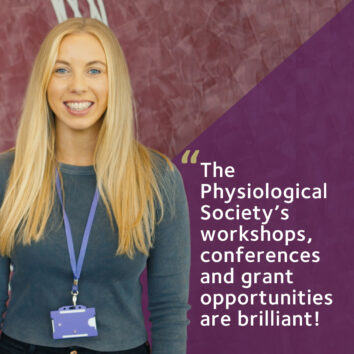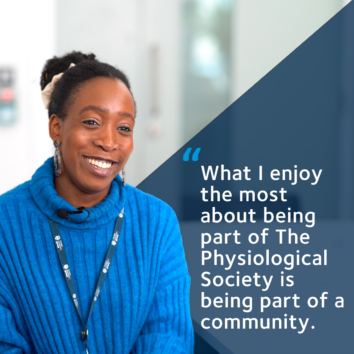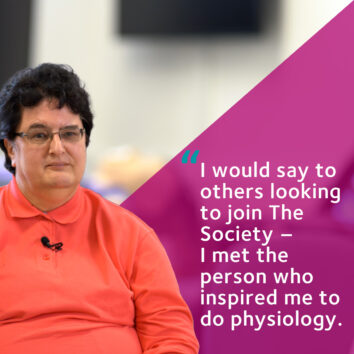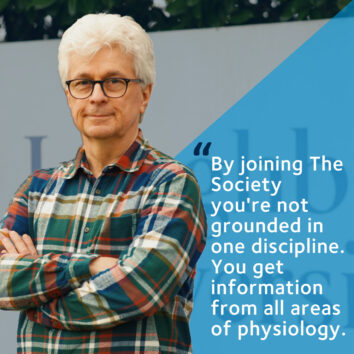

Dr Richard Siow
What I've enjoyed most about being part of The Physiological Society is to integrate my expertise together with like-minded physiologists and fellow academics.
Career journey
Richard is the Director of Ageing Research at King’s (ARK), a cross-university consortium of researchers taking a multidisciplinary approach to better understand the mechanisms of ageing, improving health-span and the social and economic impact of ageing. He is currently a visiting senior academic in the Department of Physiology, Anatomy and Genetics, University of Oxford.
His research team focuses on the role of nutrigenomics and ageing on redox signalling in cardiovascular and cerebrovascular health and disease. He has numerous international collaborations including University of Oxford, University of Zurich, National University of Singapore, Harvard Medical School, Charite Berlin and Technical University of Dresden and University of Tsukuba.

Hear from Dr Richard Siow
Questions and Answers
What inspired you to work and/or study cardiovascular health?
I graduated from King’s as a nutrition student, and I joined the Vascular Biology department for my doctoral studies. And that really inspired me to continue my work to this day in mechanisms by which we maintain cardiovascular health throughout the life course.
What inspired you to join The Physiological Society?
I was inspired to join through the department that I joined here at King’s College London. So I really wanted to learn more about not just cardiovascular physiology, but what other physiologists did.
What do you enjoy the most about working in physiology?
The multidisciplinary nature of the colleagues within the field. I work as a vascular physiologist where I’m looking at human studies through to in vitro models. However, I also integrate through the ageing research at King’s network with policymakers, with the business school, all of which is relevant to physiology. And I try to educate my own colleagues as well as students, in the importance of an integrated or holistic view of how the human body works internally, as well as how we integrate with society.
What’s been the most exciting part of your career?
My sabbatical with Unilever. I managed to spend time at the global research centres of Unilever, where I could also speak with their chief scientists and also policymakers to influence their marketing strategy and their research in wellness and healthy ageing.
What’s been the biggest challenge in your career?
The lack of understanding of what physiology is. And we often come across this issue whereby the public and even our own colleagues don’t fully appreciate the breadth of opportunities and the breadth of disciplines that physiology covers.
How has being a member of The Society benefited your career?
The Society has benefited me from the stage of an early career scientist. I had the opportunity to travel the world through its funding. That gave me the breadth and the global knowledge of other research laboratories focusing on healthy ageing and physiology.
Why do you think physiology is important as a career and in the future? How do you feel physiology or your area of research has an impact on the world?
I believe that physiology and my area of research in cardiovascular physiology and also healthy ageing has a really important impact as we consider global changes in population demographics.
What do you enjoy the most about being a part of The Society?
What I’ve enjoyed most is to integrate my expertise together with like-minded physiologists and fellow academics.
What would you say to others looking to join The Society?
What I would say to others looking to join is that this opens a wealth of opportunities for you to integrate with the society networks globally.
Timeline
2005 – 2017
The Physiological Society Rep
2008
The Physiological Society Theme Lead for Vascular & Smooth Muscle Physiology
2013
Fellow of the Royal Society of Biology
Dr Richard Siow
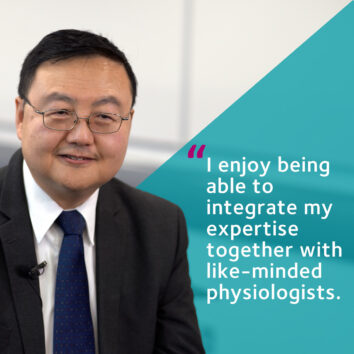
Timeline
2005 – 2017
The Physiological Society Rep
2008
The Physiological Society Theme Lead for Vascular & Smooth Muscle Physiology
2013
Fellow of the Royal Society of Biology
